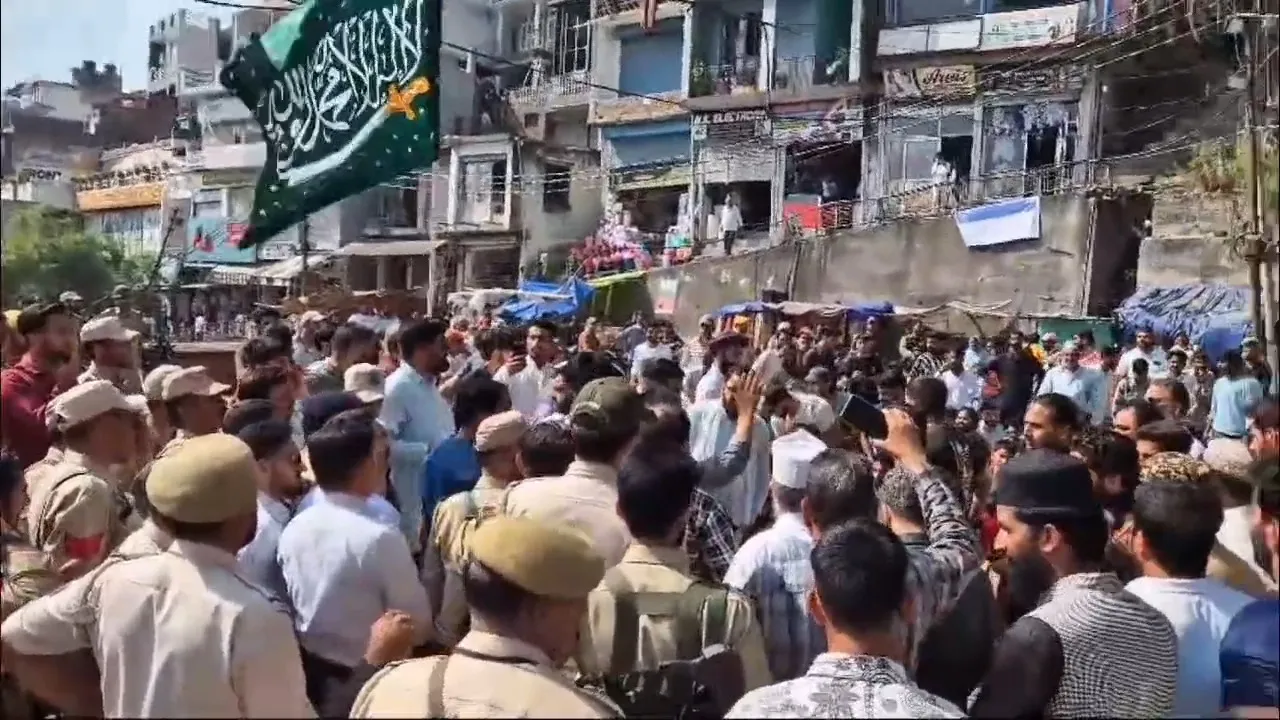 |
|
The article details a significant protest that erupted in Rajouri, Jammu and Kashmir, sparked by the inflammatory remarks made by Swami Yati Narsinghanand, a prominent Hindutva leader, against the Prophet Muhammad (PBUH). The protest, organized by various Islamic organizations, saw a large gathering of Muslims who voiced their outrage and demanded immediate action against the controversial figure. The protest, which concluded at the Abdullah Bridge in Rajouri, saw participants present a memorandum outlining their demands to local authorities, specifically the Additional Deputy Commissioner (ADC) and the Additional Superintendent of Police (ASP). These officials assured the protesters that their concerns would be conveyed to higher authorities.
The protesters highlighted the deeply offensive nature of Narsinghanand's remarks, claiming they had deeply hurt the sentiments of Muslims across the world. They stressed that such inflammatory statements posed a serious threat to the communal harmony of India. The protests, however, were not limited to Rajouri. Reports emerged of a separate, large-scale demonstration in Jammu, also calling for the arrest of Narsinghanand, underlining the widespread anger and concern over his remarks. This incident underscores the sensitive nature of religious discourse in India, where any perceived attack on religious figures can quickly escalate into widespread public unrest.
The article sheds light on the volatile situation in India where the delicate balance between religious freedom and safeguarding communal harmony is constantly tested. The incident highlights the urgent need for leaders and authorities to address such provocative statements, which can easily incite hatred and violence. It also emphasizes the role of the media in reporting such incidents responsibly, avoiding any language that could further escalate tensions and promote understanding and respect among different religious communities.
